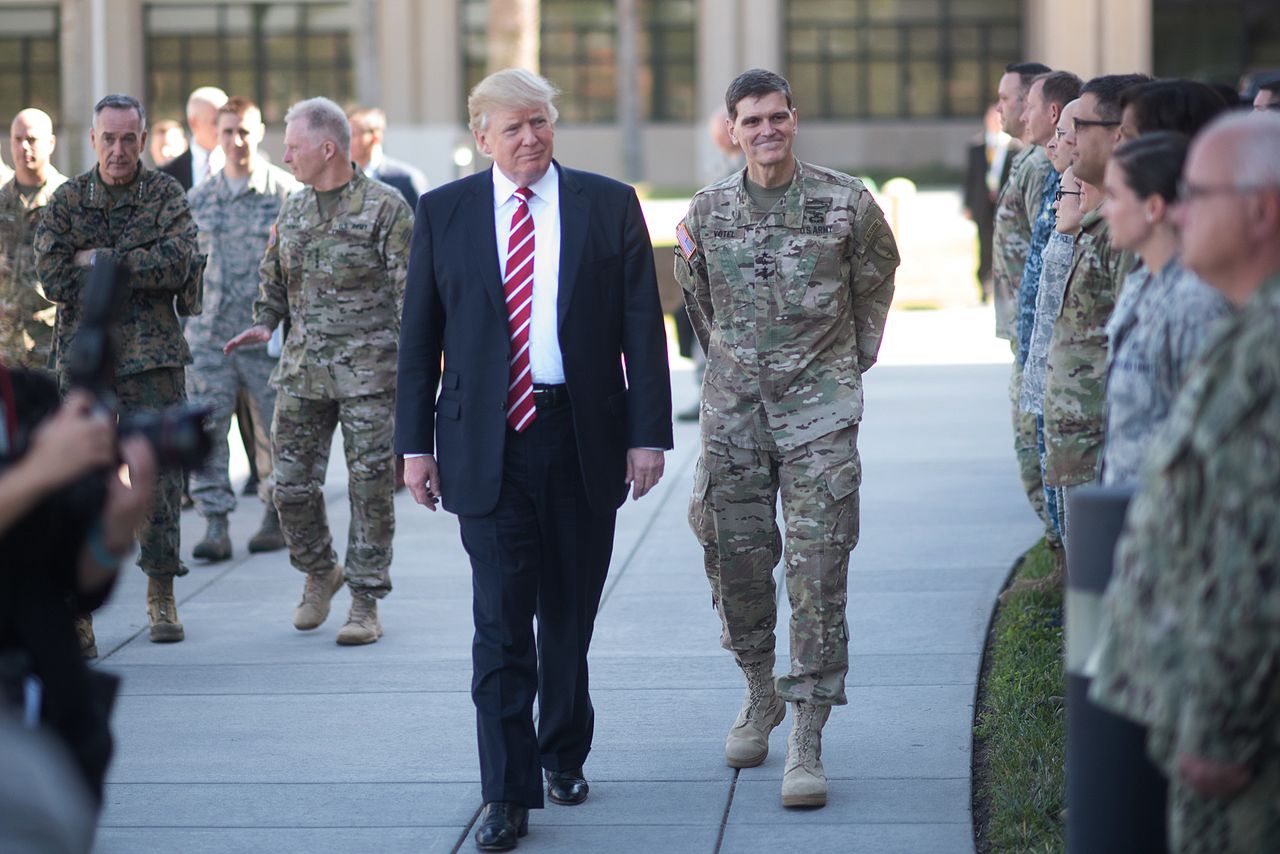Views expressed in opinion columns are the author’s own.
In his State of the Union, President Trump asked Congress to “end the dangerous defense sequester and fully fund our great military.” As part of this initiative, the president pledged to fund and construct a nuclear arsenal “so strong and powerful that it will deter any acts of aggression.” In making this request, the president has committed a common but extremely flawed error in how we think about nuclear power.
Generally, when we consider our defense, there is a common-sense belief that having more weapons translates to more personal safety — which is generally true, assuming the owner knows how to use them responsibly. This way of thinking can be expanded to the national scale — the larger the defense and military, the stronger the country. The more weapons and capabilities it has, the more a given country can protect itself.
However, that logic doesn’t apply to the United States’ nuclear program. The United States and Russia hold 88 percent of the world’s nuclear weapons and together they can destroy the world multiple times with relative ease.
There are good reasons to have nuclear weapons. Nuclear weapons create conditions of mutually assured destruction — countries in conflict will avoid escalation at all costs because the cost of escalation is the annihilation of both parties. This theory, known as nuclear deterrence theory, likely prevented the Cold War from becoming World War III and prevented war between India and Pakistan.
However, nuclear deterrence only goes so far. Once a country has enough weapons to destroy the world, any additional weapons do not make it safer. The law of diminishing returns applies to nuclear weapons, and any nuke constructed after a certain point is simply a waste of money. Once military capabilities reach that level, there is no logical reason to build more weapons except to bomb previously bombed locations — which would be a complete waste.
Some say that Trump was talking about smaller nuclear weapons that could be used in response to aggression by other countries or parties. However, because of international norms and laws of proportional response, the use of smaller nukes would need to be warranted.
The only way such a response would be warranted is if a different country had already used a nuclear weapon. Such a state probably has more nukes stockpiled, and a proportional U.S. response would almost certainly lead to mutually assured destruction. Should a leader use a small nuclear weapon against a group that does not have significant stockpiles, the response would be absolutely disproportionate and should not be ordered regardless.
Therefore, adding to the United States’ nuclear arsenal is not only ineffective but an absolute waste of funds. To improve its security, the United States needs to invest in building friendship and cooperation with influential nations — not constructing redundant figurative threats.
By investing that money in the development of other regions around the globe, the United States would probably get more return for their investment, as those countries become economically intertwined with the United States.
Making enemies is easier than making friends, but it costs much more.
Moshe Klein is a senior government and politics major. He can be reached at mosheylklein@gmail.com.



